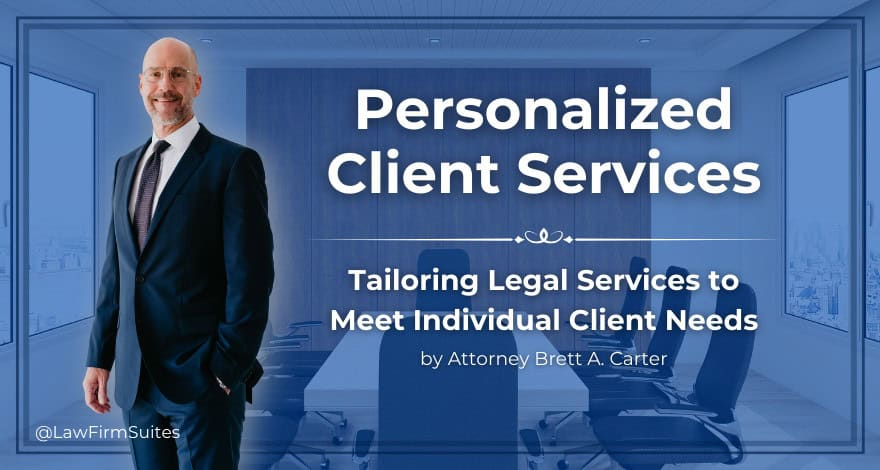In today’s dynamic environment, legal services are required to adapt to meet the distinct needs and preferences of individual clients. Recently, PwC’s Pulse Survey showed that 48% of executives are increasing their expenses in terms of customer experience. Beyond offering legal counsel, contemporary law firms must craft personalized experiences tailored to each client’s unique circumstances, guaranteeing efficiency and satisfaction. Here is an exploration of how legal professionals can customize their services to address the evolving needs of their clientele.
Understanding Client Constraints and Preferences
Accommodating Busy Schedules
Legal clients often manage demanding schedules due to personal and professional obligations. Their days involve significant commitments at home and work, leaving little time to focus on legal matters. However, the urgent nature of their legal concerns requires prompt attention, adding to their time constraints. To tackle this issue, law firms can provide flexible consultation hours, including after-hours and weekend appointments. By showcasing flexibility, attorneys can efficiently handle legal matters within clients’ busy schedules, ensuring smooth management without causing disruptions.
Leveraging Technology for Convenience
The increasing need for technology-driven legal services has paved the way for transformative opportunities by integrating secure online platforms for things such as document sharing and electronic signatures. In the 2023 ABA Legal Technology Survey, attorneys were asked about their utilization of AI-based technology tools in their practice. Findings revealed that 20.7% were either using or contemplating the acquisition of AI tools. With the implementation of office management and AI tools, clients experience the following benefits:
- Online Scheduling: Clients can experience the convenience of booking appointments online, eliminating the usual back-and-forth involved in meeting arrangements.
- Tailored Legal Strategies: AI analytics can assist legal professionals in comprehending client needs and preferences through the analysis of past case data and client interactions, enabling the development of tailored legal strategies and advice for a more personalized approach.
- Billing Transparency: AI can provide billing insights and projections, empowering clients to comprehend and foresee their legal expenses effectively.
- Video Conferencing: Online consultations via video conferencing can save clients travel time and provide ease of access to legal expertise.
Ensuring Transparent Communication
Ensuring transparent communication and providing frequent updates on case progress are essential pillars for achieving client satisfaction. By incorporating a client portal system that offers real-time updates, clients can have 24/7 access to case information, eliminating the necessity for continuous calls or emails. This practice not only cultivates trust but also maintains client engagement throughout their legal journey.
Customizing Legal Advice
Personalizing Legal Strategies
Attorneys can tailor legal strategies through a range of methods to comprehensively grasp and cater to the distinct requirements and situations of their clients. Here are several ways this can be achieved:
- Client-Centered Approach
- Conduct thorough initial consultations to gather comprehensive information about the client’s background, objectives, and concerns. This aids in understanding the client’s personal and business context.
- Tailor communication methods to the client’s preferences, be it through regular updates via email, phone calls, or face-to-face meetings. This guarantees that clients feel valued and heard.
- Data-Driven Insights:
- Use legal analytics tools to analyze previous case outcomes and trends pertinent to the client’s situation. This facilitates informed decision-making and strategy formulation backed by empirical data.
- Utilize client portals for continuous feedback collection and preference gathering. Analyzing this valuable data aids in refining strategies to enhance client satisfaction and alignment with their evolving needs.
- Risk Assessment and Management:
- Leverage online resources to forecast the potential outcomes of different legal strategies and develop various approaches that mitigate risks and align with the client’s risk tolerance.
- Create a range of strategic scenarios for discussion with your client, enabling them to select the approach that best aligns with their objectives and requirements.
- Flexible and Adaptive Strategies:
- Tailor customized legal plans to align precisely with the client’s unique goals and circumstances. For example, a Personal Injury client may need strategies that address insurance and injury ramifications.
- Regularly review and adjust strategies based on new case developments or changes in the client’s situation. This dynamic approach guarantees the strategy’s ongoing alignment with the client’s needs and the evolving legal landscape.
- Collaboration and Transparency:
- Engage clients in the decision-making process by openly discussing legal options, potential outcomes, and strategic choices. This collaborative approach fosters trust and ensures clients feel actively involved in shaping their legal strategy.
- Offering clear billing explanations and providing regular updates on legal costs enhances transparency, helping clients understand the value they receive and fostering trust in the process.
Flexible Fee Structures
Enhancing the accessibility and affordability of legal services can be achieved by providing flexible fee structures. Options like flat fees, payment plans, and unbundled services broaden the scope of clients who can access necessary legal assistance without financial burdens.
Implementing Unique Approaches for a Personalized Experience
Dedicated Client Liaison
Having a dedicated client liaison as a single point of contact can create a seamless and personalized experience for clients. This individual can manage all communications, ensuring consistency and attentiveness, which is often lacking in traditional legal services.
Continuous Improvement Through Feedback
Implementing a client feedback system through an online survey, integrated email feedback form, or third-party review site is an effective way to continuously improve services and adapt to changing client needs. Regular client-focused events, workshops, webinars, and blog posts can further engage clients and keep them informed about relevant legal changes that might affect them.
Conclusion
Tailoring legal services to meet the specific needs and preferences of individual clients is no longer optional—it’s essential. By accommodating busy schedules, leveraging technology, ensuring transparent communication, offering personalized legal advice, and implementing flexible fee structures, attorneys can create a more engaging and effective client experience.
About the Author:
Brett A. Carter is a Partner at the award-winning Personal Injury law firm Bertoldo, Carter, Smith & Cullen. Brett obtained his Bachelor’s degree in Business Administration from UNLV, followed by his Juris Doctor from Willamette University School of Law. In 1996, he partnered with John Bertoldo, focusing on personal injury and wrongful death law. Brett is a dedicated advocate for individuals coping with traumatic injuries, amputations, disfigurement, disabilities, and chronic pain.



